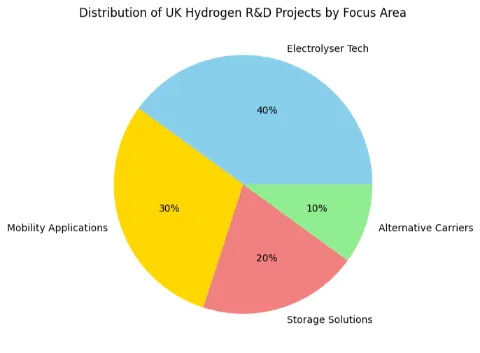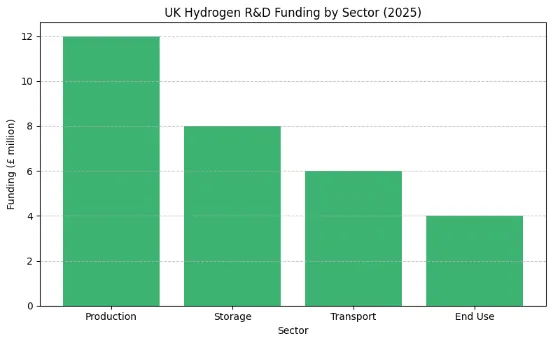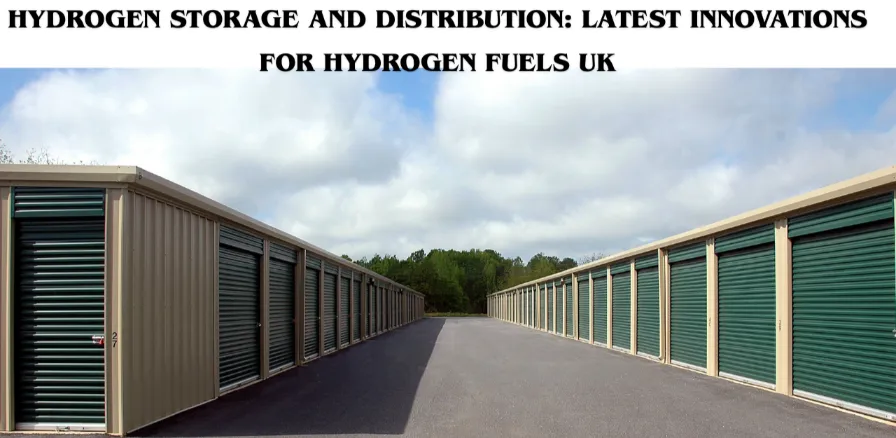Hydrogen Mobility UK: The Role of Research and Development in Advancing Transport
Research and development, or R&D, play a key role in promoting hydrogen fuels in the UK and speeding up the shift to clean, zero-emission transport. The UK government, universities, and industry are working together on focused R&D projects. They aim to tackle technical, economic, and infrastructure challenges. This collaboration helps hydrogen become a regular transport fuel and a crucial part of the UK’s goal for net-zero emissions.
Government-Led Hydrogen R&D Initiatives
Hydrogen Allocation Round (HAR2)
In April 2025, the UK government picked 27 innovative hydrogen projects under the Second Hydrogen Allocation Round (HAR2). The goal is to scale up low-carbon hydrogen production and create thousands of jobs in key industrial areas. These projects support hydrogen use in clean power generation, sustainable aviation fuel, and other sectors. They also increase hydrogen availability and lower costs.
UK HyRES Research Hub
The UK Hub for Research Challenges in Hydrogen and Alternative Liquid Fuels (UK HyRES), based at the University of Bath, received £11 million in 2023 and awarded £3 million in 2025 to fund 10 cutting-edge research projects. These projects focus on hydrogen production, storage, end-use, and alternative carriers. They directly address barriers to hydrogen use in transport and energy.
Key Research Themes Driving Hydrogen Mobility
Hydrogen Production and Green Hydrogen Scaling
R&D aims to improve electrolyser efficiency and explore new production methods like seawater electrolysis. This will help ensure a sustainable, scalable supply of green hydrogen, which is crucial for transport.
Storage and Distribution Technologies
Innovations include low-carbon hydrogen carriers like ammonia, improved pipeline materials, modular refuelling stations, and mobile refuelling units. These developments enhance accessibility and safety in hydrogen supply chains.
Fuel Cell and Vehicle Technology
Research is improving fuel cell durability, power density, and cost-effectiveness. This supports a wide range of hydrogen-powered vehicles, from passenger cars to heavy-duty trucks and buses.
Safety and Regulatory Frameworks
Creating strong safety protocols and standards for public acceptance and regulatory approval, especially concerning hydrogen handling, refuelling infrastructure, and vehicle operation.
Alternative Hydrogen Carriers
Studies on liquid organic hydrogen carriers (LOHCs), ammonia, and other chemical carriers improve long-distance hydrogen transport and storage.
System Integration
Research focuses on integrating hydrogen mobility solutions with existing energy and transport infrastructure for seamless operation.
Collaborative and Cross-Border Initiatives
The Hydrogen Corridor project is working to create large-scale hydrogen mobility routes across Europe. This project connects the UK with partners on the continent to enable cross-border hydrogen transport and vehicle refuelling.

Industry groups are collaborating closely with government-funded hubs like UK HyRES to turn research into commercial technologies. This speeds up market readiness and deployment.
Impact of R&D on UK Hydrogen Mobility

- Cost Reduction: Improvements in hydrogen production and fuel cell manufacturing are making hydrogen vehicles more competitive with traditional and battery electric options.
- Infrastructure Development: Better storage, distribution, and refuelling technologies help remove key barriers to adoption.
- Diverse Applications: Research supports hydrogen use across different vehicle types and transport modes, expanding its role in reducing transport emissions.
- Skills and Innovation Capacity: R&D investments are building the UK’s expertise and positioning it as a global leader in hydrogen technologies and clean mobility.
- Policy Support: Research findings inform government strategies and funding decisions, creating a supportive environment for hydrogen mobility.
Conclusion
Research and development are essential for the progress of hydrogen fuels in the UK transport sector. With strategic funding, collaborative projects, and ongoing innovation, the UK is addressing challenges to establish hydrogen as a practical, sustainable fuel for mobility. Continued investment in R&D is vital to meet the UK’s net-zero goals and maintain its leadership in the global hydrogen economy.
Links Included in Article


